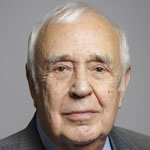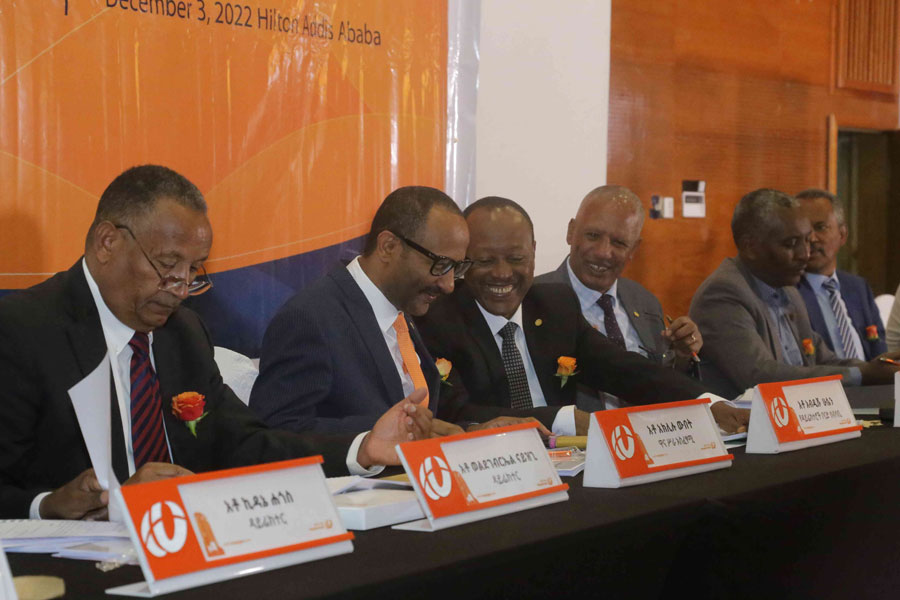
Apr 22 , 2022
By Robert Skidelsky
Through persuasion, exhortation, legal processes, economic pressure, and sometimes military force, American foreign policy asserts the United States’ view about how the world should be run. Only two countries in recent history have had such world-transforming ambitions: Britain and the US. In the last 150 years, these are the only two countries whose power – hard and soft, formal and informal – has extended to all parts of the world, allowing them plausibly to aspire to the mantle of Rome.
When the US inherited Britain’s global position after 1945, it also inherited Britain’s sense of responsibility for the future of the international order. Embracing that role, America has been an evangelist of democracy, and a central US foreign-policy objective since the fall of communism has been to promote its spread – sometimes by regime change, when that is deemed necessary.
In fact, this playbook dates back to US President Woodrow Wilson’s time. As historian Nicholas Mulder writes as such in "The Economic Weapon: The Rise of Sanctions as a Tool of Modern War."
“Wilson was the first statesman to cast the economic weapon as an instrument of democratisation. He thereby added an internal political rationale for economic sanctions – spreading democracy – to the external political goal that…European advocates of sanctions have aimed at: inter-state peace.”
The implication is that, where the opportunity offers, military and non-military measures should be used to topple “malign” regimes.
According to democratic peace theory, democracies do not start wars; only dictatorships do. A wholly democratic world thus would be a world without war. This was the hope that emerged in the 1990s. With the end of communism, the expectation, famously expressed by Francis Fukuyama’s 1989 article, “The End of History” was that the most important parts of the world would become democratic.
US supremacy was supposed to ensure that democracy became the universal political norm. But Russia and China, the leading communist states of the Cold War era, have not embraced it; nor have many other centres of world affairs, especially in the Middle East. Hence, Fukuyama has recently acknowledged that if Russia and China were driven together, “then you would really be living in a world that was being dominated by these non-democratic powers…[which] really is the end of the end of history.”
The argument that democracy is inherently “peaceful,” and dictatorship or autocracy “warlike,” is intuitively attractive. It does not deny that states pursue their own interests but it assumes that the interests of democratic states will reflect common values like human rights, and that those interests will be pursued in a less bellicose manner (since democratic processes require negotiation of differences). Democratic governments are accountable to their people, and the people have an interest in peace, not war.
By contrast, according to this view, rulers and elites in dictatorships are illegitimate and therefore insecure, which leads them to seek popular support by whipping up animosity toward foreigners. If democracy replaced dictatorship everywhere, world peace would follow automatically.
This belief rests on two propositions that have been extremely influential in international relations theory, even though they are poorly grounded theoretically and empirically. The first is the notion that a state’s external behaviour is determined by its domestic constitution – a view that ignores the influence the international system can have on a country’s domestic politics. As the American political scientist Kenneth N. Waltz argued in his 1979 book, "The Theory of International Politics," “international anarchy” conditions the behaviour of states more than the behaviour of states creates international anarchy.
Waltz’s “world-systems theory” perspective is particularly useful in an age of globalisation. One must look to the structure of the international system to “predict” how individual states will behave, regardless of their domestic constitutions.
“If each state, being stable, strove only for security, and had no designs on its neighbours, all states would nevertheless remain insecure,” he observed, “for the means of security for one state are, in their very existence, the means by which other states are threatened.”
Waltz offered a bracing antidote to the facile assumption that democratic habits are easily transferable from one location to another. Rather than trying to spread democracy, he suggested that it would be better to try to reduce global insecurity.
Though there is undeniably some correlation between democratic institutions and peaceful habits, the direction of causation is disputable.
Was it democracy that made Europe peaceful after 1945? Or did the US nuclear umbrella, the fixing of borders by the victors, and Marshall Plan-fueled economic growth finally make it possible for non-communist Europe to accept democracy as its political norm?
The political scientist Mark E. Pietrzyk contends that, “Only states which are relatively secure – politically, militarily, economically – can afford to have free, pluralistic societies; in the absence of this security, states are much more likely to adopt, maintain, or revert to centralised, coercive authority structures.”
The second proposition is that democracy is the natural form of the state, which people everywhere will spontaneously adopt if allowed to. This dubious assumption makes regime change seem easy because the sanctioning powers can rely on the welcoming support of those whose freedom has been repressed and whose rights have been trampled underfoot.
By drawing superficial comparisons with postwar Germany and Japan, the apostles of democratisation grossly underestimate the difficulties of installing democracies in societies that lack Western constitutional traditions. The results of their handiwork can be seen in Iraq, Afghanistan, Libya, Syria, and many African countries.
Democratic peace theory is, above all, lazy. It provides an easy explanation for “warlike” behaviour without considering the location and history of the states involved. This shallowness lends itself to overconfidence that a quick dose of economic sanctions or bombing is all that is needed to cure a dictatorship of its unfortunate affliction.
In short, the idea that democracy is “portable” leads to a gross underestimation of the military, economic, and humanitarian costs of trying to spread democracy to troubled parts of the world. The West has paid a terrible price for such thinking – and it may be about to pay again.
PUBLISHED ON
Apr 22,2022 [ VOL
23 , NO
1147]


Radar | Feb 27,2021

Fortune News | Jan 28,2023

Radar | Feb 02,2019

Viewpoints | Nov 16,2024

My Opinion | Dec 07,2024

Commentaries | Dec 23,2023

Editorial | Nov 11,2023

Fortune News | Jun 29,2024

My Opinion | Aug 26,2023

Viewpoints | Jun 07,2025

My Opinion | 131673 Views | Aug 14,2021

My Opinion | 128039 Views | Aug 21,2021

My Opinion | 126001 Views | Sep 10,2021

My Opinion | 123624 Views | Aug 07,2021

Dec 22 , 2024 . By TIZITA SHEWAFERAW
Charged with transforming colossal state-owned enterprises into modern and competitiv...

Aug 18 , 2024 . By AKSAH ITALO
Although predictable Yonas Zerihun's job in the ride-hailing service is not immune to...

Jul 28 , 2024 . By TIZITA SHEWAFERAW
Unhabitual, perhaps too many, Samuel Gebreyohannes, 38, used to occasionally enjoy a couple of beers at breakfast. However, he recently swit...

Jul 13 , 2024 . By AKSAH ITALO
Investors who rely on tractors, trucks, and field vehicles for commuting, transporting commodities, and f...

Jun 28 , 2025
Meseret Damtie, the assertive auditor general, has never been shy about naming names...

Jun 21 , 2025
A well-worn adage says, “Budget is not destiny, but it is direction.” Examining t...

Jun 14 , 2025
Yet again, the Horn of Africa is bracing for trouble. A region already frayed by wars...

Jun 7 , 2025
Few promises shine brighter in Addis Abeba than the pledge of a roof for every family...

Jun 29 , 2025
Addis Abeba's first rains have coincided with a sweeping rise in private school tuition, prompting the city's education...

Jun 29 , 2025 . By BEZAWIT HULUAGER
Central Bank Governor Mamo Mihretu claimed a bold reconfiguration of monetary policy...

Jun 29 , 2025 . By BEZAWIT HULUAGER
The federal government is betting on a sweeping overhaul of the driver licensing regi...

Jun 29 , 2025 . By NAHOM AYELE
Gadaa Bank has listed 1.2 million shares on the Ethiopian Securities Exchange (ESX),...